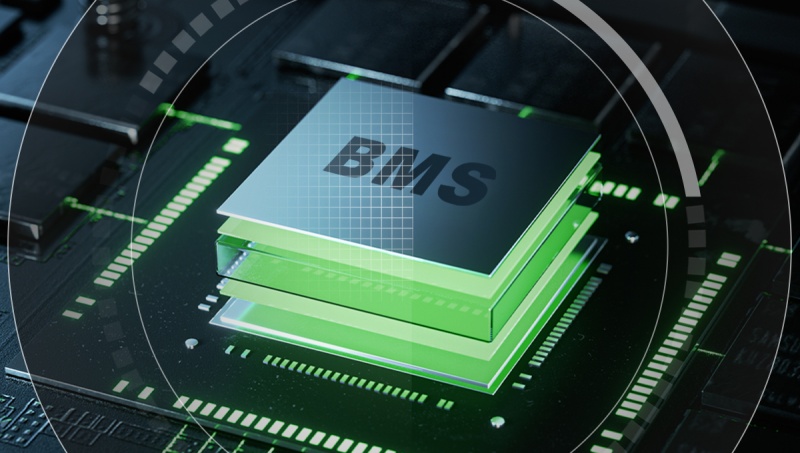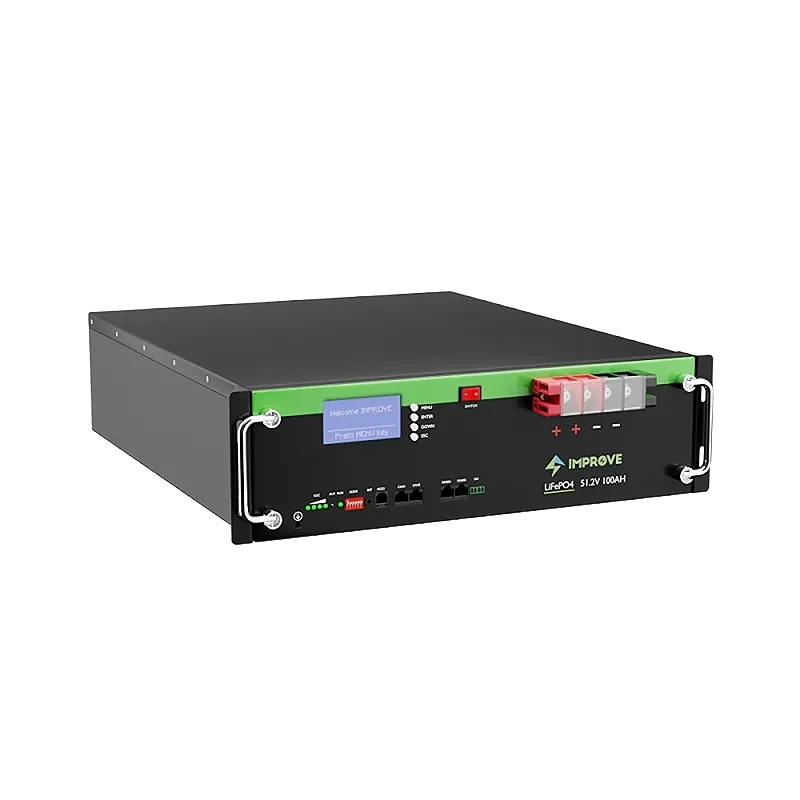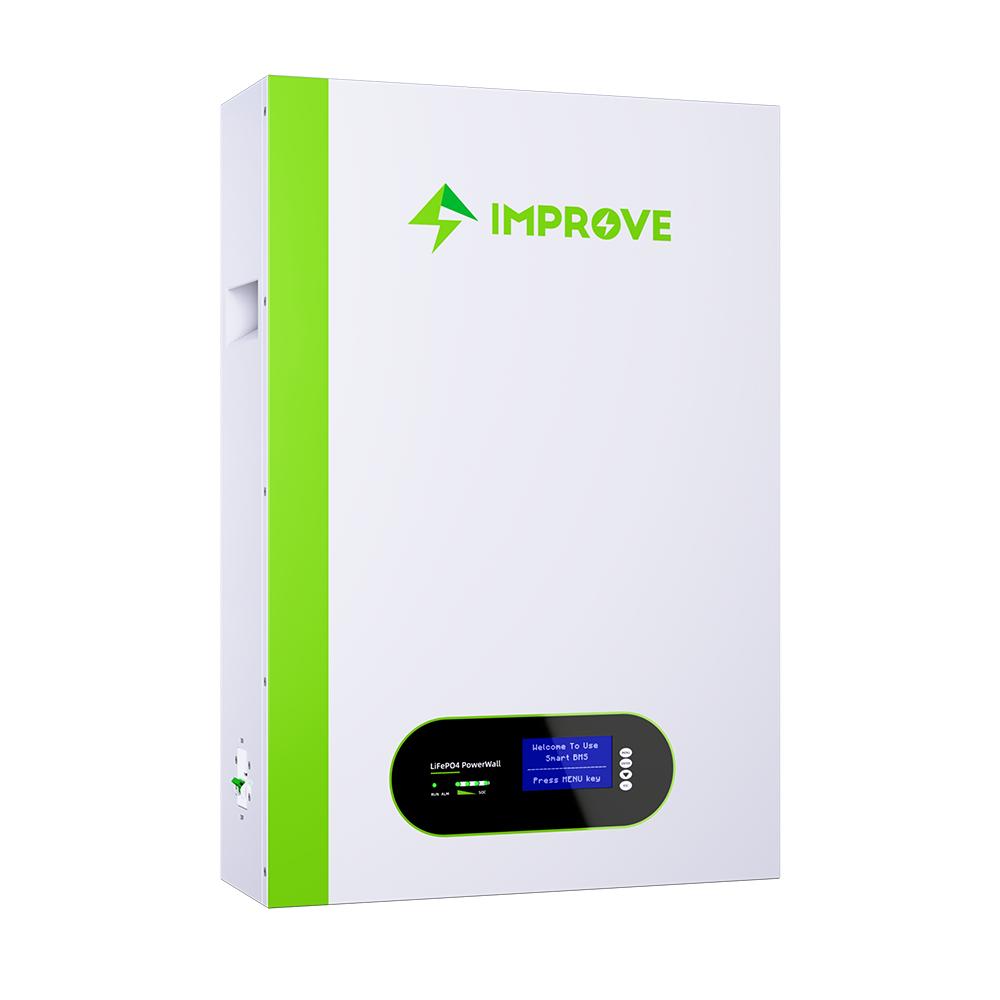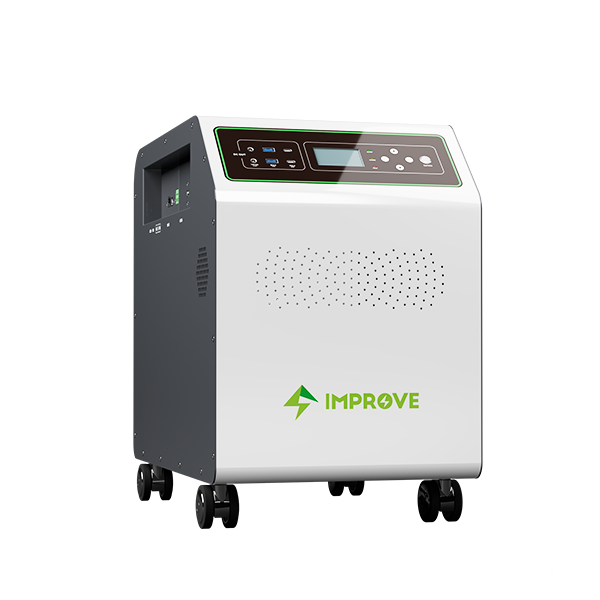LiFePO4 (lithium iron phosphate) batteries are commonly available as individual cells, and they often require a Battery Management System (BMS) for safe and efficient operation. BMS is a crucial component in LiFePO4 batteries, especially when multiple cells are combined to form a battery pack.

Lithium batteries have the advantages of light weight, large energy storage capacity, high power, no pollution, and long life, but lithium batteries are very sensitive to overcurrent and overvoltage. Large-capacity batteries are composed of many small-capacity single cells (such as 18650), which is formed by a large number of series and parallel connection. There are many parallel batteries, which is easy to cause the current imbalance of each branch. Therefore, a battery management system must be introduced to add control.
The BMS ensures the safe and efficient operation of the battery by performing several essential functions:
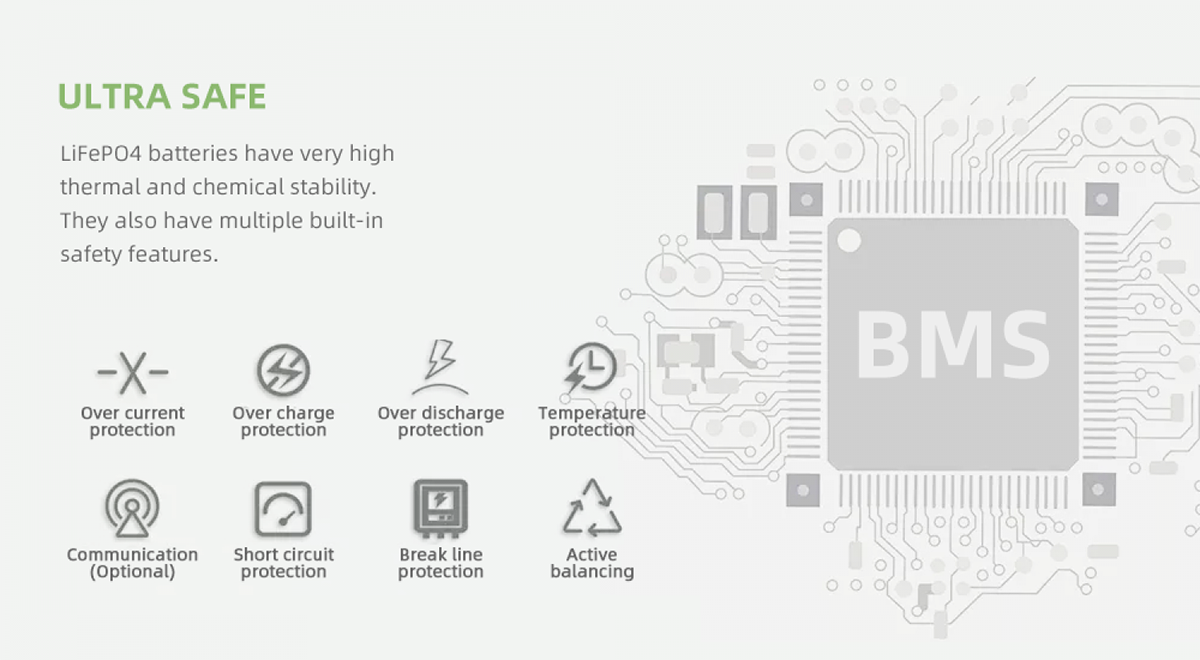
Balancing: LiFePO4 cells in a battery pack may have slight variations in capacity and voltage due to manufacturing differences or aging. The BMS monitors individual cell voltages and can balance the charge between cells to ensure that they are charged and discharged evenly, preventing overcharging or overdischarging of any specific cell.
Protection: The BMS provides protection against overcharging, overdischarging, short circuits, and overcurrent situations. It monitors the battery's parameters and acts as a safety mechanism to prevent potentially dangerous conditions.
Temperature Monitoring: The BMS keeps track of the battery's temperature and can implement measures to prevent overheating or thermal runaway in extreme conditions.
State of Charge (SOC) and State of Health (SOH) Estimation: The BMS helps estimate the SOC and SOH of the battery, providing users with valuable information about the battery's current charge level and overall health.
Communication: In advanced BMS systems, communication interfaces such as CAN (Controller Area Network) or RS485 enable the BMS to interact with external devices or monitoring systems.
Data Logging: Some BMS systems can log and store data, providing historical information on the battery's performance and usage patterns.
Battery Management System (BMS) is a device composed of microcomputer technology, detection technology, etc. It dynamically monitors the operating status of battery packs and battery cells, accurately measures the remaining power of the battery, and protects the battery from charging and discharging. And make the battery work in the best state, achieve the purpose of prolonging its service life, reducing the operating cost, and further improving the reliability of the battery pack.
By integrating a BMS with LiFePO4 battery packs, users can maximize the battery's efficiency, ensure its safety, and prolong its lifespan, making it a vital component in LiFePO4 battery based applications like electric vehicles, energy storage systems, and renewable energy applications.
IMPROVE BATTERY established in 2014, is a modern enterprise engaged in research &development, production and export of lithium batteries, China Lithium Battery Supplier. Its products cover lead to lithium energy storage batteries, wall mounted home energy storage batteries, cabinet type energy storage batteries, low-speed power batteries, etc., series


